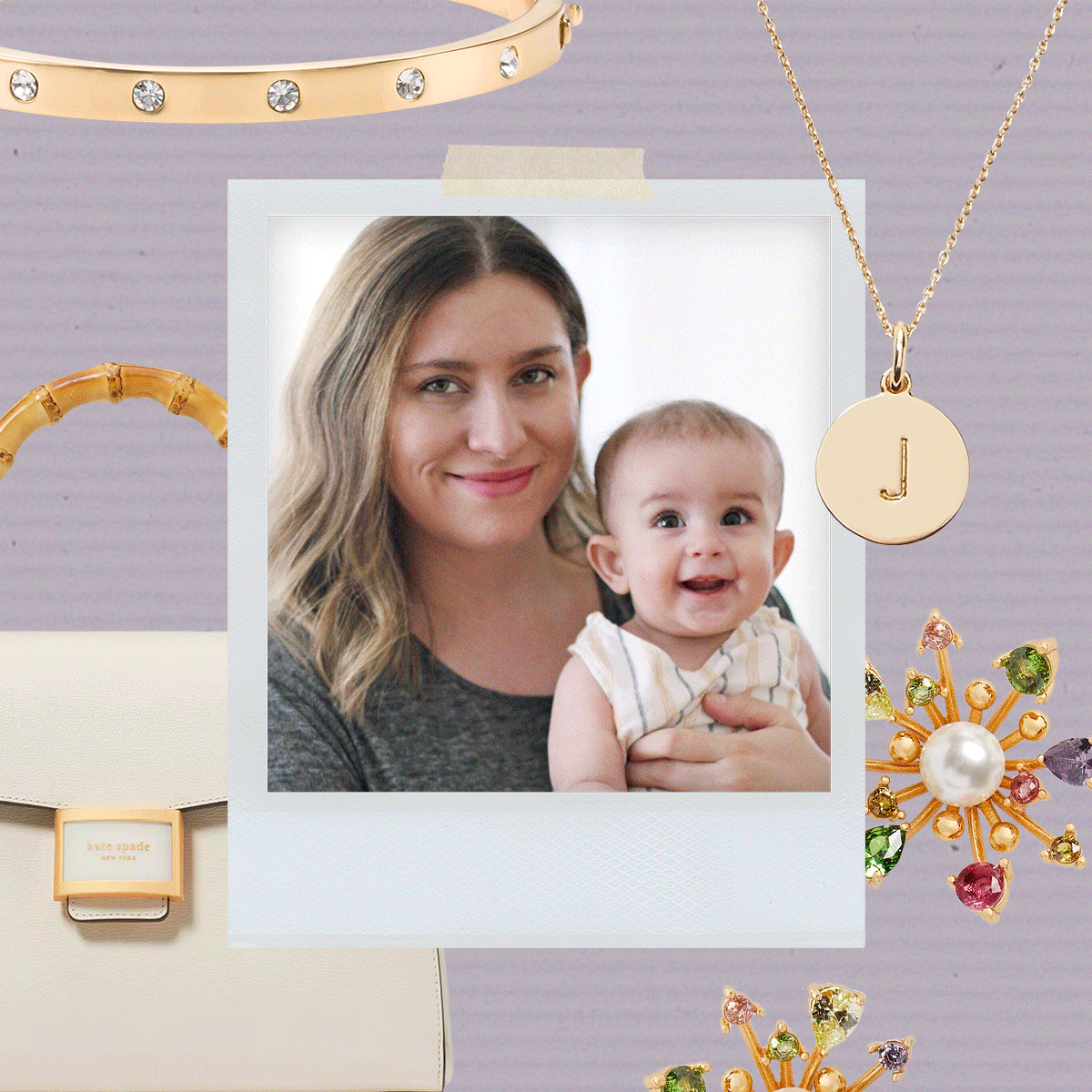New York and L.A. Girls Are All Secretly Getting This De-Bloating Treatment


I heard about it the way one hears about any taboo beauty treatment: Over white wine and crudités at the Chateau Marmont. I was there having breakfast with a few beauty editors and some publicists from a high-end makeup brand I won't mention for reasons you're about to find out. In between sips of Sauvignon Blanc and discussions of how much dairy is too much dairy, one of the women in our group casually mentioned that on days when she feels bloated, she and her friends in New York all swear by an unmentionable service offered by a chic, secret facility in the Flatiron called "Fluid Water Therapy."
After five minutes of veiled descriptions of how the treatment "totally cleans you out," and is "kind of disgusting but worth it," I pieced together that she was talking about colonics: A gut-clearing procedure that I had heard about in passing (but couldn't define if you asked me) and thought no one really got anymore. A little asking around proved me dead wrong: Apparently, everyone in New York and L.A., from celebrities to Byrdie editors, is getting colonics—they're just not talking about it.
"I got one in NYC like three years ago," revealed a fellow Byrdie staffer who requested anonymity "because, gross." As she explained, the treatment "was amazing in the days afterward—it completely rebooted my digestive system." But there's a reason I'd never heard about it until now. "Not to be TMI," she continued, "but immediately afterward, they invited me to hang out at the spa … and while I was in the steam room I was like oh shit (literally) and had to sprint to the bathroom because you like, leak."
If you've ever had a colonic, then you know exactly what my anonymous Byrdie source is talking about. But if you're outside the circle, like me, then you might be a little scared. Let's just say this: If you live in a large American city, odds are your friends are already on the colonics bandwagon. Keep scrolling to find out if you should be too.
What is colon hydrotherapy, exactly?
"Colon hydrotherapy, also known as colonic, colonic irrigation, or colon cleansing is a gentle and comfortable procedure infusing temperature- and pressure-controlled filtered water into the colon through a disposable nozzle," explains Karina Liz, founder of Blooming Waters, a highly reviewed colonics clinic in Los Angeles. "Disposable nozzle" is code for rectal tube, by the way. "It works by inserting gallons of water into the rectum via tube and flushing out remaining waste on the colon walls," explains Christopher Calapai, a board-certified expert in osteopathic medicine based in NYC. (We warned you this was unpleasant.)
But for some, the discomfort is a small price. As Liz continues, "The water gently flushes old deposits of mucus and fecal matter that is loosened from the colon wall." The point? To eliminate built-up waste, gas, and "potentially toxic substances" for the purpose of feeling "lighter, slimmer, healthier, more energized, hydrated, less bloated, and having clearer skin afterward," Liz says.
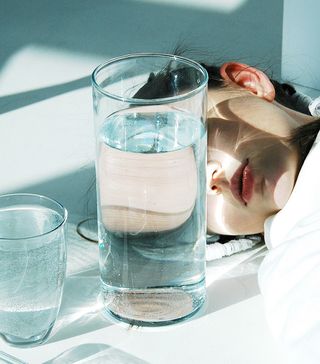
What is the procedure actually like?
This far into the story, you've either been traumatized and have clicked away, or you are intrigued to know everything. If it's the latter, get ready: We're about to walk you through every step involved in getting a colonic at NYC's Fluid Water Therapy.
Here it goes: When a client walks into the clinic, they start by filling out a health form (on an iPad, of course) to make sure they qualify for the therapy. "After we qualify the patient by going over their intake form, we proceed to explain our system and how it works," says naturopathic doctor and owner of Fluid Water Therapy, Francis Gonzalez. "Our systems are FDA registered, and everything used is sterilized and disposable." The facility's water is purified by a six-stage carbon filtration system and two bacteria-zapping ultraviolet lights. When it enters your body, it's somewhere between 99 to 102 degrees Fahrenheit.
Next, an employee gives you a few instructions and exits the room. Then, it's game time. You hop onto the machine and insert "a pencil thin, sterilized, disposable lubricated rectal nozzle" an inch or so into your tush. You cover yourself with a cloth, page the technician, and they return to get your session started.
"Once the therapy starts, the client feels warm water filling up their intestine," Gonzalez explains. "Within seconds the patient will feel like they need to have a bowel movement. At this point, we instruct them to release (push) just as they would when using their own bathroom at home. This process is repeated for about 40 minutes." (The whole time, you can see what's coming out of you in the reflection of a mirror in front of you.) "After the session has ended, the client stays seated in the system for about five to 10 minutes emptying any residual water," Gonzalez continues. Then, you are free to take a shower at the facility and head out.
To address what I know you're thinking: "No, you will not have the runs all day," Gonzalez promises. "Our clients usually go back to work, eat, and even work out after the session."
Watch this video to see the step-by-step process.
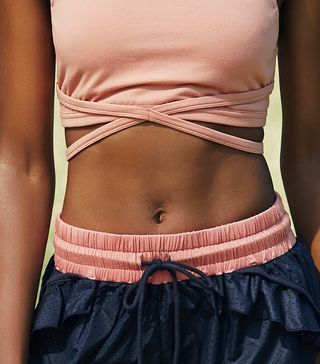
When did people start doing it?
Apparently, people have been secretly cleaning out their colons for millennia. "What many people don't know is that its history dates back to the Egyptians using enemas in 1700 B.C.," Liz explains. "There is evidence of cultures throughout the world using enemas as a ritual and therapeutic method to empty their bowels, including those in Babylonia, India, China, Africa, Peru, Mayan tribes, Native American tribes, and even French royalty."
My awareness of colonics started and ended in the early 2000s, but according to Calapai, that's no coincidence. "Back in 2000, Katie Couric had an on-air colonoscopy after her husband died, and that was when everyone started to become more aware of their colons and afraid if they weren't cleaned out, they too would get cancer," he says.
Colonics have made a comeback over the past year or two, and there's a reason for that, as well. "The natural health industry has seen a massive surge in interest, and more people are turning to alternative health and wellness practices," Liz explains. "Many people are doing preventative cleanses and turning to naturopathic doctors, who are recommending colonics."
What's the science?
Here's where there's some controversy. According to Calapai, traditional doctors recommend colonics for "severe constipation and to clear the colon for a clearer view before colonoscopy." Beyond that, there isn't much research behind the wellness benefits of colonics. "In fact, because there is such limited research doctors don't advise them," says Calapai. "The body has the liver and kidneys to do the job of eliminating harmful substances or toxins from the body."
Calapai also says more studies need to be done to provide hard data on any side effects or benefits. "It's a difficult thing to study because the colon has trillions of bacteria and altering them could present other health issues," he says. "At this point, scientists don't know enough and err on the side of not disrupting the bacteria in the colon."
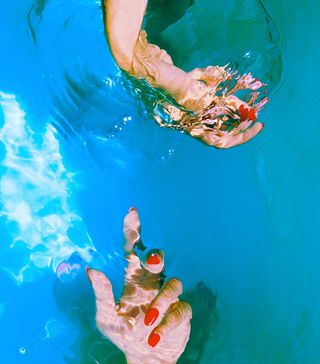
Are there any downsides?
According to Liz, colon hydrotherapy is not recommended for those with certain health conditions including Crohn's disease, heart disease, or hemorrhoids (to name a few). It's not recommended to pregnant women, either. "If in doubt, it is always best to consult your doctor beforehand," she says.
In terms of side effects for healthy people, Calapai says, "The worst case is getting a perforated bowl, serious infections, kidney or heart failure." Dehydration, stomach pain, and cramping are less severe but also possible.
By contrast, Gonzalez says colon hydrotherapy feels as normal to her as getting your teeth cleaned. "I know the medical community has a lot of concerns about intestinal perforations (that's why we prequalify a client prior and use safe medical systems)," she says. "Also a big concern in the medical community is removing healthy probiotic bacteria." But Gonzalez maintains that clients who can only go number two once a week "lack healthy bacteria in the first place," and that the antibiotics often prescribed for such conditions "cause more damage than clean water entering the colon." That said, Gonzalez does recommend that her clients take a probiotic supplement after therapy to replenish good bacteria. She says that when performed safely on the right candidate, colonics shouldn't cause any negative effects.
Should you get one?
So, beauty publicists and editors on both coasts are on board, but should you get a colonic? According to Liz, "Clients who have had issues with constipation have found the most relief with colonics, but everyone has a reason for getting one." The most common reasons are "constipation, bloating, abnormal skin breakouts, feeling sluggish, and not eliminating properly," she says.
As for frequency, patients can receive the procedure as often as once a week or as infrequently as once a year ("usually after the winter holidays," says Liz. "It is a very individualized choice.") And even if you don't talk to your friends about it, know that all sorts of people are getting colonics in secret. "In all my years I've worked with every walk of life," says Gonzalez. "From celebrities and supermodels who aim to maximize their health to chronically ill patients who just want relief when everything else fails."
Still deciding whether or not colon hydrotherapy is your thing? In the meantime, do something nice for your gut by taking one of our favorite probiotics:
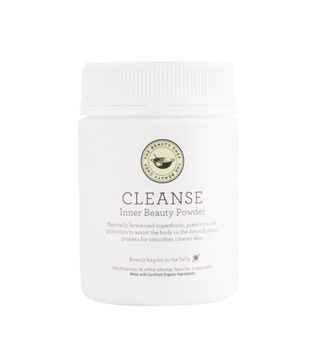
Have you ever gotten a colonic before? Would you? Share in the comments below! (We won't tell.)
Disclaimer
This article is provided for informational purposes only and is not intended to be used in the place of advice of your physician or other medical professionals. You should always consult with your doctor or healthcare provider first with any health-related questions.

Tie among Linda Rodin, Hari Nef, and David Bowie.
Who are your 5 favorite people to follow on Instagram?@petracollins @katiejanehughes @alwaysjudging @bonnyrebecca @hotdudesreading
What's the beauty essential you can’t live without?If I have some brow gel and Sisley's Phyto-Lip Twist, I'm good to go forever.
What's your desert island album?Death Cab for Cutie's Transatlanticism
What's your favorite Byrdie.com story?Game of Thrones's Nathalie Emmanuel looks so achingly beautiful in our feature with her that I think it's gonna have to be that!

